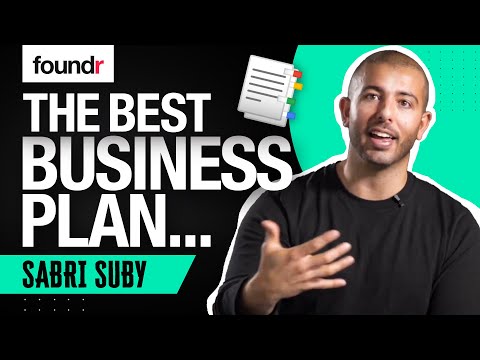Your idea is killer, now how do you find investors? Every business needs funding—some more than others. Many new small businesses are able to launch by bootstrapping, but sooner or later you might need capital to take your business to the next level.
You may find yourself wondering how to find small business investors and where to find them. As a new founder, you might need to know where to find angel investors and how to attract their attention. A more mature business might ask the same question about venture capital.
We’re going to run you through the best strategies for finding and securing investors. Because the truth is that finding investors was always half the battle. If your business isn’t in investment shape, then you’re not going to get very far. In this guide, we’ll cover both. First, we’ll outline the best ways to find investors—because we know that’s why you came and we won’t make you wait. Then, we’ll outline everything you need to know to prepare your business to make it appealing enough to secure an investment.
Table of Contents
How to Find Investors in the Real World
Preparing to Be Investment-Worthy
Prepare to Adjust Your Expectations
How to Find Investors from Founders Who’ve Done It
The Top Business Investment Types
What options do you have for funding? These are the most common ways to raise capital for a new business.
- Bootstrapping
- Friends and Family
- Angel Investors
- Venture Capital
- Crowdfunding
- Small Business Loans
Don’t Skip: How to Start a Startup (Advice from Those Who’ve Done It)
Bootstrapping
Bootstrapping is the process of self-financing your own business. While you likely won’t be able to finance your business entirely on your own without a substantial financial safety net, it’s often the best place to start—even and especially if you plan to see additional investment down the line.
Potential investors want to see that a small business owner has skin in the game. They want to see that you’ve believed in your business enough to invest your own money into it. Why should someone else believe in you with their money if you haven’t first shown belief in the idea yourself?
Jeremy Halpern, a partner at Nutter and an angel investor for many businesses in the food and beverage industry, told Business.com, “When a CEO founder is at personal risk, and their success is directly tied to the success of their company, they are more apt to persist, to innovate and to adopt a run-through-brick-walls mentality.”
Realistically assess your personal financial situation and see if there is any way—even a small way—that you can invest in your own idea. Perhaps it needs a website and you can front the hosting and design costs for such. The extent to which you’re invested in your idea, relative to your financial situation, will be taken into consideration by outside investors. If you spend 10% of your worth on it, then you will be in a better position to ask them for 10% of their investment ability.
Pros of Bootstrapping
- Freedom and ownership of your business.
- The ability to grow sustainably.
- Bootstrapping puts emphasis on the customer instead of the investors.
Cons of Bootstrapping
- It’s all on you.
- Slow growth.
- Little room for error.
- Profitability wins out over innovation.
- No up-front financial and business support.
Friends and Family
Once you’ve exhausted your own resources, consider whether your existing relationships with friends or family might be funding possibilities. It should be easier to convince someone who already knows you to invest in your idea than a complete stranger. Be prepared to give them your business plan and answer their questions. Then hone your material with the information their inquiries and responses illuminated and thank your lucky stars that you got this preparation time before approaching strangers.
Many small business owners turn to friends and family to invest in their idea. Friends and family funding is one of the most accessible methods to raise capital. You won’t have to go through the same rigorous process that you would with private investors or VC firms, and you already have the necessary connections and introductions.
A few notes on friends and family funding: the biggest perk of friends and family funding can also be its biggest risk. It’s not an established industry. Your friends and family likely aren’t professional investors, so they won’t put you through your paces in the same way a business angel might when you’re requesting funding. The flip side of this is that the same “handshake deal” vibe that makes the money easy to get can also make the business relationship complicated in the future.
Set yourself up for success by clearly outlining what your friends and family will receive in return for their investment. Will they receive equity? If so, how much? Do they expect to be repaid? If so, what’s the time frame and what interest (if any) will be paid?
Put it all in writing. And a word to the wise—if your relationship isn’t on solid ground to begin with, maybe don’t ask that person to invest. You have other options. Business funding isn’t worth jeopardizing your relationships.
Hopefully, by working within your own relationships first, you’ve realized that there is more to an individual than the money they can bring to your project. Getting feedback from others is valuable.
Being introduced to people within their own networks is a gift. Do not look past the value inherent in relationships just to pursue cash or you’ll rob yourself of opportunities to grow as a professional and hone your idea.
Pros of Friends and Family
- The buy-in of people who care about you the most.
- Support without business strings attached.
- Freedom while having a safety net.
Cons of Friends and Family
- Can alter relationships if the business fails.
- In some cases, can put more pressure on you to be successful.
Angel Investors
Angel investors are wealthy individuals who invest their own money into fledgling businesses, often in exchange for equity. The benefits of angel funding are that it can provide you with substantial capital to develop and grow your business. So, how do you secure an angel investment? Here are our tips:
- Network with local investors. Sometimes the answers you need are closest to home. Network as much as you can in your local area. Go to local startup events, chamber of commerce meetings, and fundraisers.
- Check out angel investor networks. There are several angel investor networks online. The Angel Investment Network is the largest online community of angel investors with 300,000+ investors. You can also find networks that are geared towards specific business types of entrepreneur demographics. Pipeline Angels is dedicated to funding women-owned businesses, and AngelList is designed to fund tech startups.
- Reach out to successful entrepreneurs in your area. Successful entrepreneurs have capital, know how to recognize a good business opportunity, and understand what it takes to run a successful business, AKA the recipe for a great angel investor.
Pros of Angel Investors
- A boost of capital without much meddling in your day-to-day.
- Typically, angel investors like to stay behind the scenes.
- You only have to report to a select few investors.
- Angel investors tend to have closer relationships with founders.
Cons of Angel Investors
- Can also be aloof and set unreasonable expectations.
- Lack of complete ownership of your business.
- If your business is successful later, you’ll end up earning less.
Venture Capital
Venture capital is a form of private equity that typically invests during later stages of startup growth, either in exchange for equity or a convertible note (a type of bond that can be converted to common stock or cash, once the company has more established value). A venture capital firm looks for startups with massive growth potential so they can gain a solid and expedient return on investment.
Securing venture capital is highly competitive, and it typically comes with a lot of pressure, so you want to consider this option carefully before pursuing it. Only pursue funding from a private equity firm if your business is in a position to scale and grow rapidly. The ultimate goal of venture capital is to invest in businesses that either can go public or get acquired by a major corporation.
If that sounds like a fit for your business, here are some ways to find venture capital investment:
- Research venture capital firms invested in complementary businesses. You don’t want to seek out venture capital firms that have invested in your direct competitors (that would be a conflict of interest so they’d be unlikely to invest). Instead, research venture capital firms.
- Connect with them on LinkedIn. LinkedIn has created novel investment opportunities for startups. Try connecting with venture capitalists on the platform.
- Attend pitch events. Pitch events are a great way for entrepreneurs to connect with private equity firms. Research what pitch events are happening locally or virtually. Even if you don’t pitch, it’s worth it to attend for the networking opportunities.
Pros of Venture Capital
- The investment to move fast and take risks.
- You can hire better staff.
- Networking and exposure.
- Accountability.
Cons of Venture Capital
- Less ownership and freedom.
- VCs can pressure you to exit early.
- Once you start with VCs, it doesn’t stop.
- You’re subservient to your investors.
Crowdfunding
Crowdfunding platforms allow you to finance the launch of a product or business with small investments from a large number of people. The benefit of crowdfunding is that it can give you access to the capital you need to manufacture your product or open your store, but on the flip side, you may also be required to fulfill a large number of orders as you’re still working out the kinks.
The way that crowdfunding works will depend on what type of crowdfunding platform you choose. Some platforms, like Kickstarter, work by offering perks along with purchases. Equity crowdfunding, on the other hand, offers private company securities to a group of investors. Each method has its pros and cons and you’ll want to thoroughly research each platform before you dive in.
Pros of Crowdfunding
- Create buzz and engagement around your idea.
- You’ll develop a loyal customer base from the start.
- A financial goal to develop your idea.
Cons of Crowdfunding
- Not every idea works.
- Requires upfront marketing costs.
- You owe promises to backers.
Small Business Loans
The final method of securing capital for your business is through small business loans. Small business loans come with a higher cost of capital—you’ll be expected to repay the loan with interest—but they also don’t require you to give up any equity in your business. US Small Business Administration (SBA) loans are the gold standard for small businesses loans. They have low rates and favorable terms. They’re also competitive and require a stack of paperwork to apply.
Still, it can be worth it. A small business loan allows you to maintain control over your business and protects you from the pressure a professional investor might bring early in the process.
Pros of Small Business Loans
- A financial foundation to build upon.
- Plenty of programs and support opportunities.
Cons of Small Business Loans
- A loan is a loan. You’ve got to pay the piper eventually.
- Government loans and programs involve red tape and paperwork.
How to Find Investors in the Real World
Events are one of the best ways to connect with prospective investors. You can attend an existing event or go bold and create your own.
Create an Event
If you have completed a business plan and exhausted your immediate circle of relationships, then you might be ready to create an event yourself to help build out your core team (either through adding partners or creating an advisory council). To conduct a successful event, you’ll need event planning skills, finances to fund the event, and a large enough network of potential startup business investors to invite.
Don’t fret. Most entrepreneurs do not have all of the elements necessary to create a successful event on their own. For this reason, and others, entrepreneurs can turn to an accelerator.
Tim Cartwright, the founder of Tamiami Angel Fund, encourages entrepreneurs to think along these lines. “An accelerator can be approached with an idea or concept and will provide you with the curriculum to create the business plan, build community with other entrepreneurs, and create a demo day for investors,” he says. By the time your demo day arrives, you will have not only accomplished the steps described herein but also had the benefit of completing them alongside others on a similar journey.
Attend an Event
A few words of caution before you run out and register for a conference: do not waste all your time at networking events. You could spend every week in a different city at a different trade show or conference. It’s easy to go overboard here. Don’t.
Be certain you’ve addressed the first elements covered here before going to events. Sure, you’re excited and cannot wait to get out there and see all those eyes widen and backs straighten when people learn of your “Great Big Idea.” Wait anyway. Do the first steps. Wide eyes and straight backs don’t hand over checks if you’re all talk.
When you’re ready to attend networking events, be strategic in choosing which are worth your time and money. Research is at your fingertips. Determine whether WebSummit, Money2020, TechCrunch Disrupt, SXSW, Collision, or other conferences are the gatherings best suited to receive your ideas.
Preparing Your Business to Be Investment-Worthy
Landing investment is tough. And the battle actually begins long before most new entrepreneurs realize it does. That’s because the pitch itself is just a tiny part of the process of getting funding, and there’s a long list of preparation that needs to happen well in advance in order to increase the likelihood, or even possibility, of receiving outside funding.
Investors expect you to have checked certain boxes before approaching them. When seeking funding, you’ll get questions as to whether you’ve checked these boxes and, if your answer is no, their response will be the same.
We’re here to get you ready for that fateful day, so you can walk off with a smile on your face and a check in your hand. Before you approach angel funds, venture capitalists, or even friends and family, take these steps.
Write Your Business Plan
Writing your plan shows that you’ve thought past that flash of insight in the shower when your “Great Big Idea” hits. It also communicates respect to everyone you approach. It says, “I’m serious. I’ve taken the time to think this through.” If you have not created a business plan, then pick up your pen and put this on your to-do list right now. We’ve got a great article here on how to write a winning business plan.
As you work through the steps of creating a business plan, you’ll increase your knowledge and understanding of the industry. During that initial research phase, you will establish or expand your awareness of who is already in the niche you wish to enter. In determining the purpose of your business, you’ll also form a filter through distractions, so they’ll be less likely to waste your time and attention.
A potential business investor will see that you have carefully considered not only where your idea is today, but where it could be in the future and how it can overcome potential obstacles. Remember when writing your plan to leave room for adaptability, as you may be sending the finished product to an investor, to a bank, or even a potential business partner. Finally, take time in the plan to communicate why you are passionate about this particular idea. Let people know why you care and you might just find others who care as well.
Prove Your Concept
Writing a business plan shows you’ve thought through your concept. Now, have you tested whether it will work in real life? Some ideas look great on paper, and that’s the only place they should ever exist.
Seasoned, serious investors will want to know that your idea works in real life. Assuming you haven’t bootstrapped a version of your business, are you passionate enough about your idea that you’ll devote time to building a prototype or testing out the concept? Can you join the likes of Steve Wozniak and turn your garage into a production space?
Build a prototype. Keep building until it works. The results of your testing will inform both your concept and your potential investor. Testing often uncovers flaws and loopholes in the original idea, allowing you to hone your business venture even further before bringing it up for investment consideration. It also gives you valuable data to include in the business plan. It may even uncover others who are working on a similar idea, giving you an opportunity to add business partners or at least be informed about your competition.
If your “Great Big Idea” is more a new how than a new what, then consider how you could prove your concept. For instance, maybe you have a better idea for how to represent musical artists and get them paid for use of their songs. Either create models on paper representing your concept or, better yet, find a handful of musical artists who will allow you to represent them in the new fashion you envision.
Allow yourself however many steps it takes to get your idea to a functioning prototype or proven concept. The process of doing so will prepare your idea for investment consideration and make you a better entrepreneur!
Consider a Cofounder
Perhaps you need a cofounder in your company, someone whose strengths complement your weaknesses. Are you strong on creativity but weak on finances? Seek out a financial expert who would be willing to be a cofounder or partner with you and handle those aspects of the business. You may have to give up some ownership to get this participation, but you will also gain invaluable expertise. Second, a cofounder may bring funding to the project either personally or through their network.
Form an Advisory Council
Maybe instead of a cofounder, you seek out professionals in your desired industry who would be willing to form an advisory council of sorts. This can be as few as 3 people who are willing to communicate with you and share their wisdom to help the next great thing come about in their industry. Their presence in your management structure could be the very thing that lets an investor know you are credible and investment-ready.
When forming an advisory council, consider what objections potential investors might raise and then find experts who will address those concerns. For instance, let’s say you want to fill a giant warehouse with trampolines and charge kids for entry. Perhaps a safety expert and a child development expert would make good members for your advisory council. Or maybe you want to create ergonomic office furniture. Approaching medical professionals or physical therapists for membership on your council would be a very wise step.
Practice Listening
When approaching strangers—even if you already think the person will be a good advisory council member, business partner, or investor—first ask for advice and then LISTEN.
Set aside whatever goal you brought to the conversation and actually hear what the person is saying. Ask questions about the advice you are being given until you understand how you can apply it to your business concept. Hear what they’re saying beneath the actual words they are saying. Are you hearing a willingness to help? Is the person conveying a genuine curiosity about you or your concept? If so, maybe you’ve found your business partner or advisor. Take a deep breath because you are about to make an ask, not for money, but for something even more valuable—time.
Get Clear on Your Ask
If you expect to find sincere interest in your idea, be prepared to communicate exactly what your request entails. Are you asking the person to be an advisory council member? A cofounder? A business partner? What will these roles mean for the person? Will there be daily emails? Monthly meetings? Phone calls? Will the person be expected to reach out to their circle of influence and bring those people into the mix? Don’t assume that your expectations are the same as others who may have approached this person for help. Speak clearly, communicate succinctly what you are asking the person to do with regard to you and your project. Here’s an example:
Thanks so much for taking the time to talk to me. I know your time is valuable. You seem interested in what I’m working on, which makes me wonder if you’d consider being on an advisory council for this? It’d probably be a couple of emails per week and a phone call every month or so. I would bring you questions or ideas as I develop the concept further and expect you to give feedback on those from your place of experience and expertise.
Practice Your Pitch
You won’t be able to woo private investors like angel investors or venture capitalists without a solid pitch deck. Not sure where to start? Check out our guide on developing a million-dollar pitch deck.
Prepare to Adjust Your Expectations About the Investing Process
“It will take twice as long to raise the money you need as you hope,” Cartwright advises, “and you’ll probably need twice as much as you think.”
You’ve put in an enormous amount of work to get to this point. Now is not the time to lower numbers and hope that makes you more attractive to investors. Know what you need, and then add a margin for error. Educated investors expect such.
At this stage, if you have been networking and attending conferences while preparing yourself, it’s highly likely you have already been connected with several investors. Networking is one of the easiest ways to find people who are willing to invest capital in your business. If not, you can always Google and go in the cold.
Find out the names of the people involved in the funds you’re approaching and then research those people. Investors will absolutely be performing due diligence on you. It’s perfectly acceptable to do your own due diligence on them. After all, you’ve worked hard to create an attractive investment vehicle. Ask if they have invested in projects before that achieved success. If the person fails to list even one success story, you have some information to pause and consider.
Keep Learning: Business Startup Funding – A Beginner’s Guide
How to Find Investors from Founders Who’ve Done It
What will set you above all those other entrepreneurs approaching angel funds and venture capitalists? That’s different for each one. Some prefer to fund specific phases in a business’s life, others are targeted toward a specific industry or niche.
Learn from stories of successful founders who’ve raised money from investors in different ways:
- How Hismile Transformed from Internet Sensation into a Category Contender
- Michelle Zatlyn: A Silicon Valley Outsider Who Did the Impossible
- How Mercury Co-founder Immad Akhund Finds Joy in Building Startups, Even If They’re Not His
- Eat My Baby Co. Founder Turned Nostalgic Snacks into an Apparel Brand That Celebrates Heritage
- How Holly Thaggard and Supergoop! Took Sun Protection Global
- Kirin Sinha Is Leading the AR Charge With Illumix
- Why Ethan Yong Left His Career to Build UmamiPapi Into a Chili Oil Sensation
Ready to Learn More?
We’re here to help entrepreneurs grow their knowledge base so they can grow their businesses. Check out our selection of comprehensive free training to help you get started on everything from building an ecommerce business to growing your social media presence.
The post How to Find Investors That Will Fund Your Business appeared first on Foundr.









